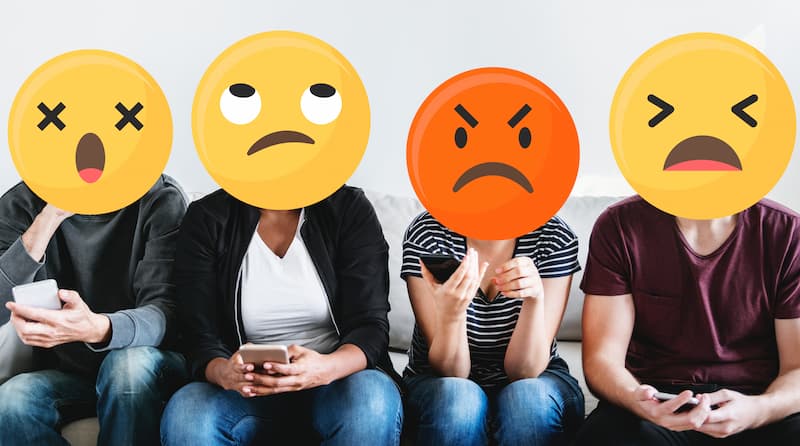Imagine a potential customer is shopping your website for a new phone repair service. They find your local shop with great Google reviews, solid testimonials, and a helpful website. But when they search your name, a BBB page pops up with a “C” rating and a couple of unresolved complaints. Even if those reviews are outdated or unfair, that rating can create instant doubt.
The BBB still matters, especially for people who don’t know how it works behind the scenes. As a modern business owner, it’s important to take a closer look at how the BBB really operates and whether its reviews reflect your business.
The Better Business Bureau (BBB) has long been regarded as a trusted source for checking whether a company is reliable. But here’s something many people don’t realize: the BBB isn’t a government agency. It’s actually a private, for-profit business.
Why Consumers Still Check the BBB
Even though most people turn to Google, Yelp, or Trustpilot for reviews these days, the BBB still carries a certain level of trust. In fact, if someone searches your business name along with the words “reviews” or “complaints,” your BBB page is likely one of the first things they’ll see.
That means for many potential customers, it’s their first impression of you. They’re not expecting perfection, but they are looking for a solid rating, a history of responsiveness, and some sign that you handle complaints professionally. Effective negative BBB reviews management can help you address unfair feedback and show that you take customer concerns seriously. If potential customers see a string of unresolved issues or a low grade, even if the reviews aren’t entirely fair, it can make them hesitate and look elsewhere.
Most people don’t read every single complaint in detail. They’re quickly scanning for red flags. If your page looks outdated, ignored, or defensive, that negative vibe can stick with them, sometimes more than a glowing Google review ever could.
The Problem with BBB’s Review and Rating System
Many people see the Better Business Bureau as a neutral watchdog, but it’s actually a private, for-profit company that makes money from business memberships, creating potential conflicts of interest.
For example, many business owners assume that getting an “A” rating means they’ve done everything right—provided excellent service, handled complaints well, and followed the rules. However, there have been plenty of cases where companies that didn’t pay for BBB accreditation ended up with lower scores or slower responses to complaints. Meanwhile, businesses with questionable practices but active memberships kept higher ratings.
This kind of pay-to-play system can leave honest business owners feeling stuck. You can bend over backward to do right by your customers, yet still see an average or even poor BBB score. And if you try to challenge an unfair review, the process is often slow and frustrating, with little support.
When BBB Reviews Work Against You
If you’ve been running a business for a while, chances are you’ve run into a situation where the BBB made things more difficult instead of helping. Maybe a customer complained about something entirely outside your control, like a shipping delay from a third-party carrier, but the BBB still marked it against your business. Or maybe someone left a negative review that stayed on your profile for months without verification, and the BBB ignored your efforts to fix the issue.
Even more frustrating, it’s often easier for someone to file a complaint than it is for you to resolve one. And even if you do fix the problem by offering a refund or going above and beyond to make things right, that doesn’t always improve your score. It can feel like no matter how well you treat your customers, the BBB rating doesn’t reflect your actual service.
That kind of setup is discouraging. You work hard to build trust and run a fair business, but the system can still paint an incomplete or unfair picture. And when you try to explain that to potential customers, many still trust the BBB name more than your side of the story.
What You Can Do About It
Even if dealing with the BBB feels frustrating, you can’t just ignore it; you need a smart strategy. First, claim your BBB profile if you haven’t already done so. This lets you respond to complaints, update your business info, and show you’re actively engaged, even if you don’t have BBB accreditation.
Make it a habit to reply to every complaint calmly and professionally, even if the review seems unfair. Remember, you’re not only speaking to the person who complained—you’re also showing future customers how you handle issues. People don’t expect perfection, but want to see that you take responsibility. When they see you stay respectful and attentive, even under pressure, it builds trust in your business.
Next, balance your reputation by focusing on other review sites with more transparent systems, like Google, Trustpilot, and your own website testimonials. These platforms can help push positive and accurate feedback higher in search results, which means fewer people will focus only on your BBB page.
Finally, if you think the BBB has treated your business unfairly, don’t hesitate to share your story on your own channels. Writing a blog post or a clear statement on your website about how you handle customer service and reviews helps you control your side of the story. Being honest about your BBB experience can even earn respect from customers who’ve gone through similar challenges.
Building Trust Beyond the BBB
Consumers still check the BBB, but that doesn’t have to be the whole story. You can build trust in many ways beyond just one rating or review site. Focus on giving real value to your customers. Share your story through content. And ask happy clients to leave feedback where it matters most.
Trust isn’t built on just one perfect rating—it grows through consistent honesty and transparency over time. While the BBB can influence how people see your business, working with a reputation management firm can help reduce the impact of negative reviews.
So keep an eye on your BBB profile, but don’t let it hold you back. Today, you have more tools and more control than ever to build a reputation that truly shows who you are.





